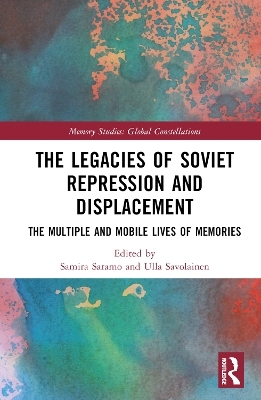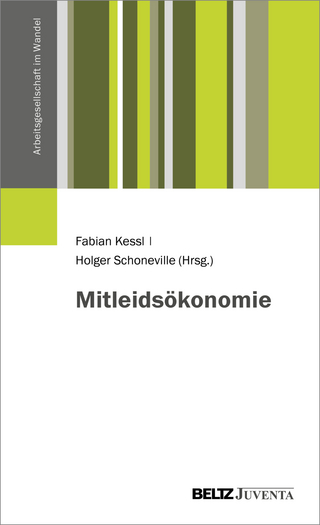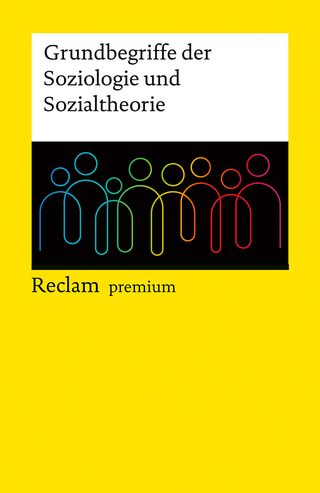
The Legacies of Soviet Repression and Displacement
Routledge (Verlag)
978-1-032-30525-7 (ISBN)
By offering novel multi-sited and multi-media analyses of the creative, political, societal, cultural, and intimate implications of remembrance, the collection contributes fresh interdisciplinary perspectives to both the field of memory studies and the study of Soviet repression. The case studies in this collection focus on the personal, autobiographical, and intimate representations, experiences, and practices related to the remembrance of Stalinist repression and displacement as they are mediated through memoirs, fiction, interviews, and versatile commemorative practices. Taken together, the book asks: what happens to memories, life stories, testimonies, and experiences when they travel in time and space and between media and are (re)interpreted and (re)formulated through these transfers? What kinds of memorial forms are gained through processes of mediation? What types of spaces for remembering, telling, and feeling are created, negotiated, and contested through these shifts? What are the boundaries and intersections of intimate, familial, community, national, and transnational memories?
By analytically contextualizing the various case studies within broader memory discourses in a range of geographical and political contexts, the book offers rich and multilayered interpretations of the enduring ramifications of communist repression. The collection demonstrates that these multiply moving memories not only reflect Eastern European memory culture but also reach far beyond and have transnational and transgenerational significance. As such, this timely book will be essential reading for anyone with an interest in the former Soviet Union or memory studies more broadly.
The Open Access version of this book, available at http://www.taylorfrancis.com, has been made available under a Creative Commons [Attribution-Non Commercial-No Derivatives (CC-BY-NC-ND)] 4.0 license.
Samira Saramo is Kone Foundation Senior Researcher at the Migration Institute of Finland. Saramo is a transdisciplinary historian researching Finnish mobilities through the lenses of life writing, emotions, community, place, and the everyday. She is the author of Building That Bright Future: Soviet Karelia in the Life Writing of Finnish North Americans (2022). Saramo’s research has been published in Journal of Social History, Qualitative Research, European Journal of Life Writing, Comparative American Studies, European Journal of American Studies and elsewhere. She is the Chair and Founder of the History of Finnish Migrations Network and Vice Chair of the Finnish Oral History Network. Ulla Savolainen is University Researcher at the University of Helsinki, Department of Cultures. She is a folklorist specializing in memory studies, oral history, and narrative research. Her research interests include poetics and politics of remembrance, transnationality, and materiality. She is the leader of the research projects "Transnational Memory Cultures of Ingrian Finns" (2020–2022) and "Toward an ecology of memory. Mediums, modalities, and agents of the construction of Ingrian Finnish pasts" (2022–2025). Savolainen’s doctoral dissertation (2015) focused on the life writings of former Karelian child evacuees in Finland. She has also researched oral histories of internments of German and Hungarian citizens in Finland in 1944–1946 and analyzed reception of compensation for past injustice.
Introduction: Moving Memories of Stalin-era Repression and Displacement Part I: Mobile Becomings 1. Gender, Loyalty, and the Epistolary Manifestation of Feeling, 1936–1940 2. Siberian Letters and Memory of Transatlantic Correspondence between Lithuanians in the West and the Soviet Union 3. Mnemonic Affordances of Family Photographs: Assembling Memorability of Displacement and Soviet Repression Part II: Commemorative Materializations 4. The Zone: Remembering the Political Repression Camp "Perm-36" 5. On the Role of the Individual in Materializing, Mediating, and Commemorating Memories of the Stalinist Repressions 6. "It Didn’t Happen Here, or Happen Now, But It Happened to Us": Stories of Bread and Hunger in L’viv, Ukraine Part III: Attuning Belonging and Family Memory 7. Suffering, Death, and Homeland in the Memoirs of Lithuanian Deportees 8. Mediating (Post)memory in Multilingual and Multicultural Writing: The Autobiographical Texts of Katharina Martin-Virolainen and Anna Soudakova 9. Remembering the Ingrian Finns and Soviet Terror in the Novels by Anita and Juhani Konkka Part IV: Implications of Suffering 10. Complicity in Commemoration: The "Traumatic Enfilade" in the Work of Maria Stepanova 11. Remembering Soviet Terror in the Aftermath of the Donbas War: Mondegreen by Volodymyr Rafeyenko 12. Afterlives of Gulag Narratives: Fictional (Re)mediations of Displacement, Neglected Memories, and Repetitive Anxiety
| Erscheinungsdatum | 20.04.2023 |
|---|---|
| Reihe/Serie | Memory Studies: Global Constellations |
| Zusatzinfo | 6 Halftones, black and white; 6 Illustrations, black and white |
| Verlagsort | London |
| Sprache | englisch |
| Maße | 156 x 234 mm |
| Gewicht | 453 g |
| Themenwelt | Sozialwissenschaften ► Politik / Verwaltung |
| Sozialwissenschaften ► Soziologie ► Allgemeines / Lexika | |
| Sozialwissenschaften ► Soziologie ► Spezielle Soziologien | |
| ISBN-10 | 1-032-30525-8 / 1032305258 |
| ISBN-13 | 978-1-032-30525-7 / 9781032305257 |
| Zustand | Neuware |
| Haben Sie eine Frage zum Produkt? |
aus dem Bereich


